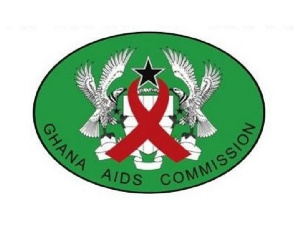General News of Wednesday, 13 March 2024
Source: www.ghanaweb.live
2024-03-13Ghana AIDS Commission warns of HIV risks if LGBTQ+ bill is passed
 Ghana AIDS Commission (GAC)
Ghana AIDS Commission (GAC)
Ghanaian
The Ghana AIDS Commission (GAC) has expressed concerns that passing the Human Sexual Rights and Family Values Bill, 2021, commonly known as the LGBTQ+ bill, could lead to a resurgence of HIV infections in the country.
According to Graphic Online, Dr. Fred Nana Poku, the Director of Technical Services at GAC, emphasized that if key populations affected by the law,
Read full articlesuch as men who have sex with men and transgender individuals, are driven underground due to fear of criminalization or discrimination, they may avoid accessing essential HIV services, including medication.
He highlighted the risk of individuals with HIV not taking their medication, leading to high viral loads and an increased likelihood of new infections, especially if they continue to engage in unprotected sexual activities.
Dr. Poku acknowledged that while the bill contains both positive and negative aspects, it is crucial for Parliament to consider the potential public health implications, especially regarding HIV prevention and treatment.
At a two-day national media training for journalists across the country on HIV-related human rights, stigma, and discrimination, organised by the GAC, in partnership with the Ghana Journalists Association (GJA), SEND Ghana, and UNAIDS with funding from PEPFAR, he stated “That is the possibility using the public health lens to look at the issue. The bill, as it is, has several components.
There are some positive parts and there are some negative parts and that is why in our projections to Parliament, we highlighted the areas that should be looked at.”
“I do not know whether our projections and suggestions and recommendations have been fully captured in the final bill.”
The bill, passed by Parliament on February 28, imposes a minimum of three years and a maximum of five years of imprisonment for individuals engaged in or promoting homosexual activities in Ghana, targeting key populations in HIV and AIDS prevention efforts.
Derick Oppong-Agyare, the Deputy Director of Programmes at GAC, emphasized the importance of reducing stigma to achieve Ghana's goal of ending AIDS by 2030, noting that the country relies heavily on international partners for funding HIV medications and prevention efforts.
USAID Ghana Health Office Director Zohra Balsara expressed concern about the continued abuse and discrimination faced by people living with HIV, which often prevents them from accessing necessary treatment and support services for a healthy life.











